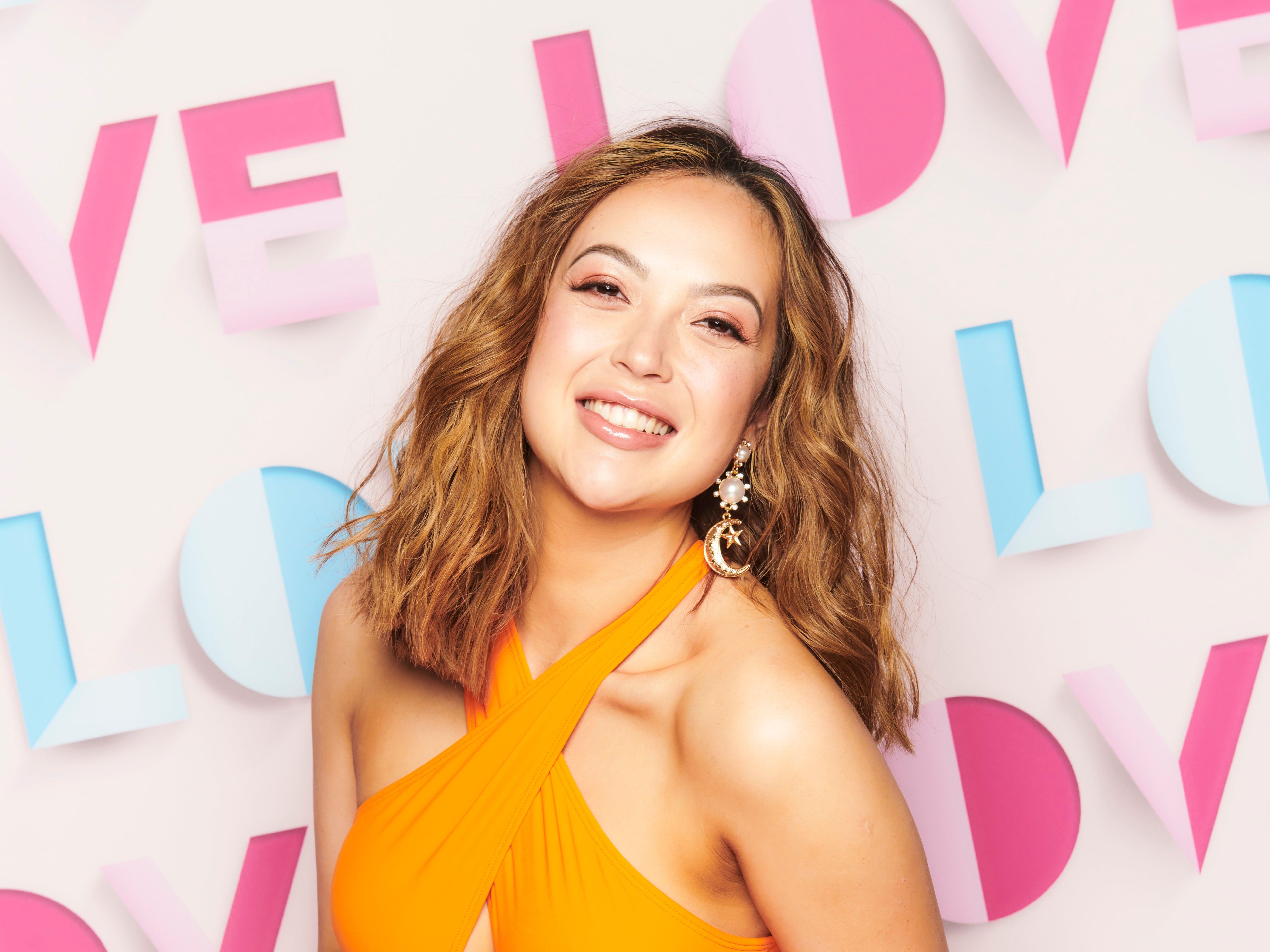
Love Island contestant Rachel Finni has claimed she was told by ITV staff that she was put on the show due to backlash over its lack of diversity.
Finni, 29, appeared on the most recent season of the hit dating show, where singletons couple up in the hopes of finding love and winning £50,000. She was also the programme’s first Black bombshell, meaning she entered the series as a surprise.
In an interview for The Murad Merali Podcast, she said: “They put me in at that time and gave me that entrance because they thought: ‘OK, this is going to shut people up’.”
On the podcast, she said that she felt undesired by her fellow white contestants who expressed they weren’t attracted to Black women, and felt producers were ticking boxes for diversity rather than valuing them as individuals.
She said: “They didn’t give me a story because they were just ticking boxes. They had someone who was disabled, tick, someone who was from the NHS, tick, two people who were Asian, tick. They only care about ticking boxes.”

Finni entered the Love Island villa on the fifth day of season seven and spent nine days on the show before being dumped after failing to couple up with another contestant.
Looking back on her experience, she said that despite having fun at the time, she felt her potential was wasted on the show and had a negative experience overall.
“I got told by people that work at ITV that I got put in at that time because there was so much backlash on the outside for a lack of diversity,” Finni said.
She claimed that during the audition process, contestants weren’t made to feel comfortable to talk about race and felt that if there were more open conversations, she would have been able to find a connection with someone.
Another contestant from season seven, Sharon Gaffka is from a mixed-race, Asian background and said she also struggled to find love on the show due to its lack of diversity.
Speaking to Insider, Gaffka said: “The producers are meant to match people… but whose type was I? It was a struggle at times and I think it [made it] a lot harder to form an actual connection with somebody.”

She added that conversations about race and dating between her and fellow contestant, Kaz Kamwi, were never aired.
“Kaz and I come from those ethnicities that are very hyper-sexualised in modern dating. Actually, it would have done a lot of good [to air the conversation] because I feel like a lot of women who are from different races do have the same problems,” she said.
Since Finni appeared on the show, she has gone back to living a private, happy life and is hopeful for a more inclusive next season of Love Island.
She told The Independent: “I am now in a place where I am comfortable enough to be extremely honest about my time on the show and detail how awful it was. I was a pawn to production whether they will take ownership of that or not.”
Finni urged ITV to rethink their attitudes to diversity and inclusion. She said: “Make the casting process comfortable enough where people can be truly honest about their types without being made to feel as if they are being offensive by being specific. Also, cast people that are attracted to more than what the show has portrayed to be desirable in the past.
“Finally, stop having only one Black woman in the original line-up and another in at Casa Amor. It’s embarrassing that I was the first Black woman to walk into the villa as a bombshell when it’s on its seventh series,” Finni continued.
“Cast people of all backgrounds throughout show, not just at the beginning and halfway through. If I see only one male and female in the line up from an ethnic minority again in the upcoming series, I will scream!”
A spokesperson for ITV told The Independent: “ITV has a commitment towards accelerating change in terms of Black, Asian and Minority Ethnic representation across both its workforce and it’s on-screen talent and contributors, as part of its Diversity Acceleration Plan.
“Diversity and inclusivity are key priorities for us as a broadcaster and we are always looking to improve representation on screen and behind the scenes. We would take any suggestion that any editorial decisions are made based on race very seriously indeed and would refute this in the strongest possible terms.”







